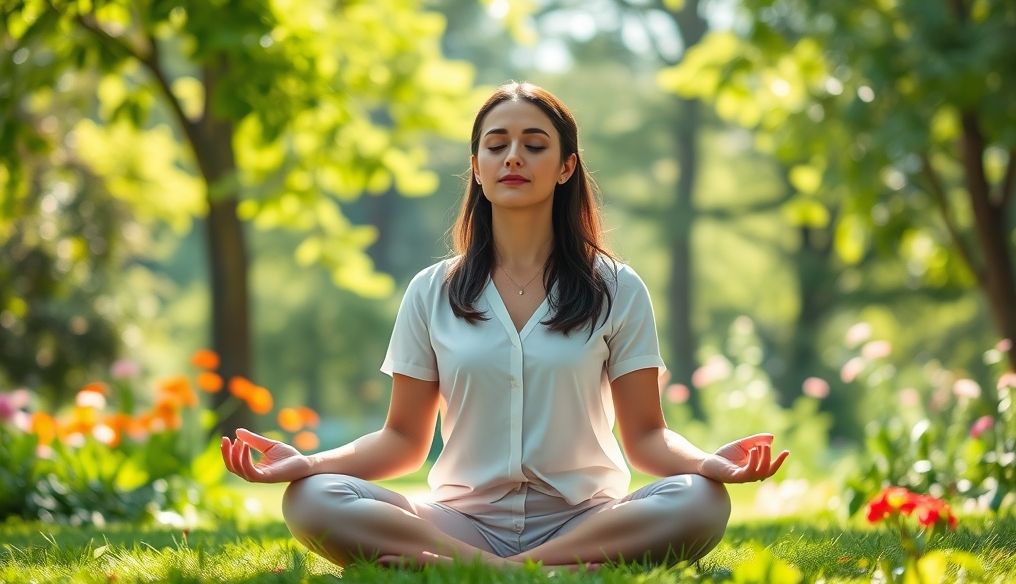Can Yoga and Meditation Really Improve Mental Health?
In a world filled with stress and challenges, mental health has become an increasingly important focus. As many seek effective ways to improve their mental well-being, yoga and meditation stand out as promising natural solutions. But are these ancient practices truly capable of achieving tangible change? This article aims to answer this question by reviewing scientific evidence, exploring potential benefits, and providing practical tips for integrating yoga and meditation into your daily life.
1. What are Yoga and Meditation? An Overview
Before delving into the benefits, it's important to understand what yoga and meditation are correctly:
Yoga:
Yoga is not just physical exercise. It's an integrated system aimed at unifying the mind, body, and spirit. Yoga includes a variety of physical postures (asanas), breathing techniques (pranayama), and meditation. These practices aim to improve flexibility, strength, balance, and body awareness, as well as calm the mind and reduce stress.
Meditation:
Meditation is a practice aimed at training the mind to focus and be calm. There are different types of meditation, including Mindfulness Meditation, Transcendental Meditation, and Guided Meditation. Regardless of the type, the primary goal is to cultivate awareness of the present moment and reduce mental clutter.
2. Scientific Evidence: What Does the Research Say?
Research investigating the impact of yoga and meditation on mental health has increased significantly in recent years. Many studies suggest that these practices can be effective in alleviating symptoms of several mental health conditions:
- Anxiety: Numerous studies have shown that yoga and meditation can reduce anxiety and stress levels. For example, a study published in the "JAMA Internal Medicine" journal found that yoga was as effective as Cognitive Behavioral Therapy (CBT) in alleviating symptoms of generalized anxiety.
- Depression: Research suggests that yoga and meditation can help improve mood and reduce symptoms of depression. A systematic review published in the "Journal of Psychiatric Practice" found that yoga was associated with significant improvements in depression symptoms.
- Post-Traumatic Stress Disorder (PTSD): Yoga and meditation may help people with PTSD process trauma and reduce associated anxiety and stress symptoms.
- Insomnia: Yoga and meditation can help improve sleep quality and reduce insomnia by calming the mind and body.
3. How Do Yoga and Meditation Improve Mental Health?
There are several potential mechanisms that can explain how yoga and meditation improve mental health:
- Stress Reduction: Yoga and meditation help activate the parasympathetic nervous system, responsible for the "rest and relaxation" response, which reduces the secretion of stress hormones such as cortisol.
- Improved Self-Awareness: Yoga and meditation help cultivate awareness of thoughts, feelings, and bodily sensations, allowing individuals to understand themselves better and respond to challenges more effectively.
- Increased Neuroplasticity: Research suggests that yoga and meditation can change the structure and function of the brain, increasing neuroplasticity (the brain's ability to adapt and change) and improving cognitive performance.
- Enhanced Sense of Connection: Yoga and meditation can help foster a sense of connection to oneself, others, and the world around us, increasing feelings of belonging and social support.
4. Types of Yoga and Meditation Suitable for Mental Health
There are many types of yoga and meditation, and it may be helpful to try different types to find what suits you:
Types of Yoga:
- Hatha Yoga: A gentle and slow-paced type that focuses on basic postures and breathing.
- Restorative Yoga: A very relaxing type that uses props to support the body in comfortable positions.
- Vinyasa Yoga: A dynamic and fast-paced type that links movement to breath.
- Kundalini Yoga: A type that focuses on spiritual energy, breath, and chanting.
Types of Meditation:
- Mindfulness Meditation: Focuses on paying attention to the present moment without judgment.
- Transcendental Meditation: Uses a mantra (sound or word) to help calm the mind.
- Guided Meditation: Listens to an audio recording that guides you through the meditation process.
- Loving-Kindness Meditation: Focuses on cultivating feelings of love and kindness towards oneself and others.
5. Practical Tips for Integrating Yoga and Meditation into Your Daily Life
To get the most out of yoga and meditation, it's important to integrate them into your daily life in a sustainable way:
- Start Slowly: Don't try to do too much at first. Start with a few minutes of yoga or meditation daily and gradually increase the duration.
- Be Consistent: Try to practice yoga or meditation at the same time each day to create a routine.
- Find a Quiet Environment: Choose a quiet and comfortable place where you can focus without distractions.
- Be Patient: It may take some time to see results. Don't get discouraged if you don't notice immediate changes.
- Use Available Resources: There are many books, apps, and online videos that can help you learn yoga and meditation.
- Join a Class: Joining a yoga or meditation class can be a great way to learn the correct techniques and get support from others.
6. Yoga and Meditation as Part of a Comprehensive Treatment Plan
It is important to recognize that yoga and meditation are not a substitute for traditional medical or psychological treatment. However, they can be a valuable addition to a comprehensive treatment plan. If you are experiencing a mental health issue, it is important to consult a doctor or therapist to assess your condition and determine the best course of treatment.
7. Personal Experiences: Inspiring Stories
Many people around the world share inspiring stories about how yoga and meditation have helped them overcome mental health challenges and improve their quality of life. These stories reinforce hope and affirm the power of these ancient practices.
"I started practicing yoga after being diagnosed with depression. At first, it was difficult, but over time, I began to feel much better. Yoga has helped me calm my mind, connect with my body, and feel more inner peace." - Sarah, 35 years old
8. Conclusion: Yoga and Meditation as Powerful Tools for Mental Health
Based on scientific evidence and personal experiences, it can be said that yoga and meditation can be powerful tools for improving mental health. These practices can help reduce stress, anxiety, depression, and insomnia, as well as improve self-awareness, neuroplasticity, and a sense of connection. If you are looking for natural ways to improve your mental well-being, yoga and meditation may be a good option for you.
Disclaimer: This article is for informational purposes only and should not be considered a substitute for professional medical advice. Consult your doctor or therapist before starting any new treatment regimen.




